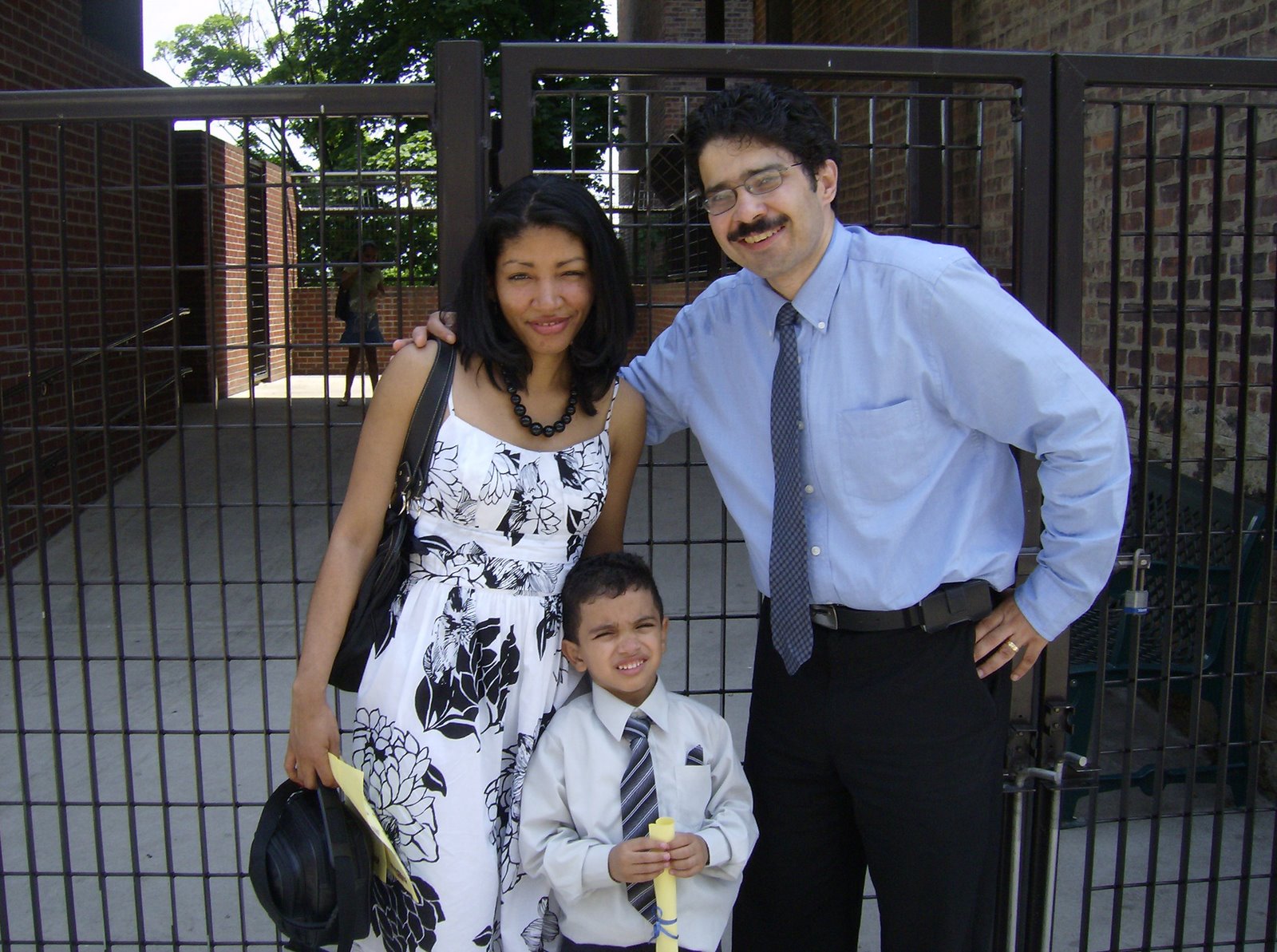
This week i could not blog anymore-i just felt not right and dishonoring to the memory of this precious child-so i will blog again next week and end this one with a article on God and babies that die young in their entirety:
Are Those Who Die in Infancy Saved?Sam Storms
Nov 6, 2006
Series: Controversial Issues
If human nature is corrupt and guilty from conception, the consequence of Adam's transgression, are those who die in infancy lost? The same question would apply to those who live beyond infancy but because of mental retardation or some other handicap are incapable of moral discernment, deliberation, or volition.
This is more than a theoretical issue designed for our speculation and curiosity. It touches one of the most emotionally and spiritually unsettling experiences in all of life: the loss of a young child.
I was first confronted with this issue on a personal level in the late 1970s. I received a phone call from a family in our church which had just experienced the premature birth of twin girls. Upon arriving at the hospital I was informed that one of the girls had died. I never anticipated the question that came my way as I walked into the room of the grieving mother: "Sam, is my baby in heaven?" A few years later the young child of a good friend was killed in a car accident. The parents asked me to perform the funeral, once again putting me in the position of having to think through and articulate in a biblical and compassionate way what I believed about the eternal destiny of their child. So, what conclusion did I reach? Let's take a look at the variety of options that have been suggested.
(1) The sinlessness of infants - One view insists that those dying in infancy are saved for the simple reason that there is nothing in them or done by them that merits condemnation. In other words, they are born in a state of moral neutrality or moral equilibrium. They do not possess a sin nature nor are they corrupt. They are, in a word, characterless. They lack moral standing. There is nothing in their souls that is properly the object of divine judgment. Hence all dying in that state are saved for no other reason than that they are not condemnable. Several texts would seem to contradict this view, among them Pss. 51:5; 58:3; Prov. 22:15; Gen. 8:21; Job 15:14-16; Eph. 2:3.
(2) Universalism - Another viewpoint simply asserts that all will be saved, inclusive of those dying in infancy. None will suffer eternal condemnation. God's saving grace extends effectually to the entire human race. Again, countless texts could be cited to disprove this idea, among them Mt. 7:13-14, 21-23; 8:11-12; 10:28; 13:37-42; Luke 16:23-28; 2 Thess. 1:9; Jude 6; Rev. 14:10-11; 20:11-15.
(3) Post-Mortem Salvation - Based on a certain interpretation of 1 Peter 3:18-19 and 4:6, it is asserted that those who die without having the opportunity to hear the gospel of Christ and make a cognitively and morally informed decision will be granted a "second chance" (it is, in fact, a "first" chance if they never had a legitimate opportunity in this life). As for infants in particular, it is said that God will bring them to a state in which they are sufficiently mature to understand and choose responsibly.
There are several problems with this view.
First, how can they be brought into a state of maturity by God without the influence of parents, education, peers, experience, etc. which contribute to our own intellectual and spiritual framework and on the basis of which we ourselves make an informed choice? Would they be brought into a state of moral equilibrium, having had no history of personal sin that has so decisively shaped who we are? If God is the one who somehow directly educates and nurtures them, has he not then prejudiced their minds/wills in a way that is altogether different from the way we are educated and nurtured? The problems associated with this are innumerable.
Second, the two texts on which they base their view say nothing about post-mortem evangelism for either those dying in infancy or pagans who never hear the name of Jesus. I will address both these texts in a future installment of Deciphering Difficult Texts.
Third, from a pastoral point of view, this theory does nothing to ease the anxieties of parents who want to know if their baby is in heaven. For there is no guarantee, on this view, that even if given an opportunity after death that they will respond in faith.
(4) Infant Salvation via Infant Baptism - Certain traditions within Christianity have affirmed baptismal regeneration, according to which the waters of baptism are used by God to effect the regeneration, spiritual cleansing, and forgiveness of the infant. Needless to say, this view is only as cogent as is the case for baptismal regeneration, and the case for the latter is poor. In addition, it fails to address the question of what happens to the vast majority of infants in the history of the world who died without the benefit of Christian baptism.
(5) The Roman Catholic Concept of "Limbo" - The Roman Catholic Church has acknowledged the possibility of a state of natural blessedness or happiness in which unbaptized infants experience a form of eternal peace but not the consummate joy of heaven itself. Rome has neither formally affirmed nor denied this teaching.
(6) Salvation of the Infants of Believing Parents - Others have appealed to 1 Cor. 7:14-16 to argue that the infants or children of a believing parent or parents are, for that reason, granted special salvific privilege in the kingdom of God. Again, this view is only as cogent as is that particular interpretation of 1 Cor. 7.
(7) Elect Infants are Saved - Another view advocated by some Reformed theologians is that some who die in infancy are elect, and therefore saved, while others are non-elect, and therefore condemned.
(8) All those dying in Infancy are Elect - The view that I embrace is that all those dying in infancy, as well as those so mentally incapacitated that they are incapable of making an informed choice, are among the elect of God chosen by him for salvation before the world began. The evidence for this view is scant, but significant.
First, in Romans 1:20 Paul describes people who are recipients of general revelation as being 'without excuse.' Does this imply that those who are not recipients of general revelation (i.e., infants) are therefore not accountable to God or subject to wrath? In other words, those who die in infancy have an "excuse" in that they neither receive general revelation nor have the capacity to respond to it.
Second, there are texts which appear to assert or imply that infants do not know good or evil and hence lack the capacity to make morally informed and thus responsible choices. According to Deut. 1:39 they are said to 'have no knowledge of good or evil.' This in itself, however, would not prove infant salvation, for they may still be held liable for the sin of Adam.
Third, is the story of David's son in 2 Sam. 12:15-23 (esp. v. 23). The first-born child of David and Bathsheba was struck by the Lord and died. In the seven days before his death, David fasted and prayed, hoping that "the Lord may be gracious to me, that the child may live" (v. 22). Following his death, David washed himself, ate food, and worshipped (v. 20). When asked why he responded in this way, he said that the child "has died; why should I fast? Can I bring him back again? I shall go to him, but he will not return to me" (v. 23). What does it mean when David says "I shall go to him?" If this is merely a reference to the grave or death, in the sense that David, too, shall one day die and be buried, one wonders why he would say something so patently obvious! Also, it appears that David draws some measure of comfort from knowing that he will "go to him." It is the reason why David resumes the normal routine of life. It appears to be the reason David ceases from the outward display of grief. It appears to be a truth from which David derives comfort and encouragement. How could any of this be true if David will simply die like his son. It would, therefore, appear that David believed he would be reunited with his deceased infant. Does this imply that at least this one particular infant was saved? Perhaps. But if so, are we justified in constructing a doctrine in which we affirm the salvation of all who die in infancy?
Fourth, there is consistent testimony of Scripture that people are judged on the basis of sins voluntary and consciously committed in the body. See 2 Cor. 5:10; 1 Cor. 6:9-10; Rev. 20:11-12. In other words, eternal judgment is always based on conscious rejection of divine revelation (whether in creation, conscience, or Christ) and willful disobedience. Are infants capable of either? There is no explicit account in Scripture of any other judgment based on any other grounds. Thus, those dying in infancy are saved because they do not (cannot) satisfy the conditions for divine judgment.
Fifth, and related to the above point, is what R. A. Webb states. If a deceased infant
"were sent to hell on no other account than that of original sin, there would be a good reason to the divine mind for the judgment, but the child's mind would be a perfect blank as to the reason of its suffering. Under such circumstances, it would know suffering, but it would have no understanding of the reason for its suffering. It could not tell its neighbor - it could not tell itself - why it was so awfully smitten; and consequently the whole meaning and significance of its sufferings, being to it a conscious enigma, the very essence of penalty would be absent, and justice would be disappointed of its vindication. Such an infant could feel that it was in hell, but it could not explain, to its own conscience, why it was there" (The Theology of Infant Salvation [Harrisonburg, VA: Sprinkle Publications, 1981], 288-89).
Sixth, we have what would appear to be clear biblical evidence that at least some infants are regenerate in the womb, such that if they had died in their infancy they would be saved. This at least provides a theoretical basis for considering whether the same may be true of all who die in infancy. That is to say, "if this sort of thing happens even once, it can certainly happen in other cases" (Ronald Nash, When a Baby Dies [Zondervan, 1999], 65). These texts include Jeremiah 1:5; Luke 1:15.
Seventh, some have appealed to Matthew 19:13-15 (Mark 10:13-16; Luke 18:15-17) where Jesus declares, 'Let the little children come to me, and do not hinder them, for the kingdom of heaven belongs to such as these.' Is Jesus simply saying that if one wishes to be saved he/she must be as trusting as children, i.e., devoid of skepticism and arrogance? In other words, is Jesus merely describing the kind of people who enter the kingdom? Or is he saying that these very children were recipients of saving grace? But if the latter were true, it would seem to imply that Jesus knew that the children whom he was then receiving would all die in their infancy. Is that credible?
Eighth, Millard Erickson argues for the salvation of deceased infants in an unusual way. He argues that notwithstanding Adam's sin, there must be a conscious and voluntary decision on our part to embrace or ratify it. Until such is the case, the imputation of Adam's sin to his physical posterity, as is also true of the imputation of Christ's righteousness to his spiritual posterity, is conditional. Thus, prior to reaching the "age of accountability" all infants are innocent. When and in what way does this ratification of Adam's sin come about? Erickson explains:
"We become responsible and guilty when we accept or approve of our corrupt nature. There is a time in the life of each one of us when we become aware of our own tendency toward sin. At that point we may abhor the sinful nature that has been there all the time. We would in that case repent of it and might even, if there is an awareness of the gospel, ask God for forgiveness and cleansing. . . . But if we acquiesce in that sinful nature, we are in effect saying that it is good. In placing our tacit approval upon the corruption, we are also approving or concurring in the action in the Garden of Eden so long ago. We become guilty of that sin without having to commit a sin of our own" (Christian Theology, 2:639).
But there are at least two problems with this. First, if we are born with a corrupt and sinful nature, as Erickson concedes we are, our willing ratification of Adam's transgression and the guilt and corruption of nature which are its effects is itself an inevitable effect of the corrupt nature to which we are now ostensibly giving our approval. In other words, how else could a person who is born corrupt and wicked respond but in a corrupt and wicked way, namely, by ratifying Adam's sin? If Erickson should suggest that such a response is not inevitable, one can only wonder why it is that every single human being who ever lived (except Jesus) ratifies and embraces the sin of Adam and its resultant corruption of nature. Surely someone, somewhere would have said No. Erickson would have to argue that at the point when each soul becomes morally accountable it enters a state of complete moral and spiritual equilibrium, in no way biased by the corruption of nature and wicked disposition with which it was born. But that leads to the second problem, for it would mean that each of us experiences our own Garden of Eden, as it were. Each human soul stands its own probation at the moment the age of moral accountability is reached. But if that is so, what is the point of trying to retain any connection at all between what Adam did and who/what we are? If ultimately I become corrupt by my own first choice, what need is there of Adam? And if I am corrupt antecedent to that first choice, we are back to square one: my guilt and corruption inherited from Adam, the penal consequence of his choice as the head and representative of the race.
Ninth, an argument that is entirely subjective in nature (and therefore of questionable evidential value) may be noted. We must ask the question: Given our understanding of the character of God as presented in Scripture, does He appear as the kind of God who would eternally condemn infants on no other ground than that of Adam's transgression? Admittedly, this is a subjective (and perhaps sentimental) question. But it deserves an answer, nonetheless.
Personally speaking, I find the first, third, fourth, fifth, and ninth points convincing. Therefore, I do believe in the salvation of those dying in infancy. I affirm their salvation, however, neither because they are innocent nor because they have merited God's forgiveness but solely because God has sovereignly chosen them for eternal life, regenerated their souls, and applied the saving benefits of the blood of Christ to them apart from conscious faith.
God Bless,
willie








No comments:
Post a Comment